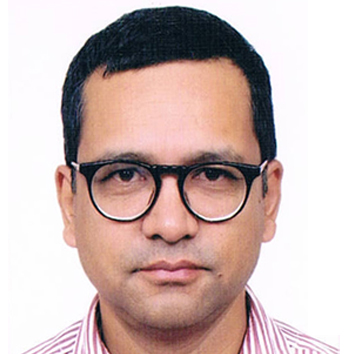Columns
Dissecting PhD Sagas – III
Without academic writing training, Nepali universities will continue to shortchange our doctoral students.
Pratyoush Onta
In the first instalment of this column published four weeks ago, I argued that institutionalising the requirement of already published research articles as part of the application package to enter PhD programmes works as a barrier to entry for potential applicants. In the second instalment published two weeks ago, I argued that although the “PhD by coursework” modality was the right approach, current staff shortages and the lack of teaching competence and teamwork at Tribhuvan University (TU) resulted in poor delivery of coursework for doctoral students. Although I used TU as an example, the same argument applies to all Nepali universities that have adopted the “PhD by coursework” modality. In this piece, I point out that Nepali universities dispensing PhDs in the social sciences and humanities must put more emphasis on academic writing training than it does now.
Multiple requirements
Over the past decades, the requirements for a PhD in Nepali universities in the above-mentioned disciplines have become multiple. While there are some variations, once students register for PhD programmes at most universities in Nepal, they face a package of requirements. Apart from regular coursework (when required), they are expected to attend methodology workshops, write their dissertation proposals and defend them, write a literature review essay, write and present seminar papers, attend conferences, publish papers based on their research and defend their dissertations, all before they are awarded their degrees. In theory, these activities are required so that the PhD students learn important aspects of the research/academic trade as part of their training. These activities are also required, so the logic goes, to produce better quality PhD dissertations. But are these requirements really working?
Take, for instance, the case of workshops on methods. Former professor of history at TU, Tri Ratna Manandhar, registered for his PhD at TU in 1978. Early on, he was required to attend a workshop on methods. In a 2021 memoir essay, he recalled that some PhD holders showed up for the seminar and delivered lectures, which he found useless. About 30 years later, Tika Ram Gautam registered for his PhD in Sociology at TU. In an article published in 2021, Gautam says that the mandatory research methodology workshop for registered PhD candidates “turned out to be a mere formality.” In other words, over the span of three decades, the methods workshop delivered to PhD students at TU have not worked for them.
On the other hand, Gautam writes that he found the experience of writing a seminar paper under his supervisor Chaitanya Mishra’s guidance really helpful. So obviously this is a more useful activity for doctoral students, provided they can work directly with supervisors with good writing experiences. However, he adds that despite the various requirements, most PhD “students are at a loss when it comes to writing, structuring, and sequencing [dissertation] chapters…. Similarly, candidates are also unable to explain their core argument which forms their thesis.” I have seen plenty of evidence to support Gautam’s evaluation in the form of articles submitted to workshops and journals by PhD students from Nepali universities.
Hence, although I agree that the various requirements institutionalised in recent years are needed as part of good doctoral training packages, if the resulting dissertations and derivative articles written by our PhD students are very weak academically, then I think we need to invest more in making their writing training more effective. Perhaps some of the other requirements need to be scaled down to accommodate this increased investment in writing.
Delivering writing training
Is such writing training delivery possible in our universities? For that to happen, various constituents must make some broad decisions.
First of all, we will need a general agreement among those who run PhD programmes that learning to write academically is the most fundamental skill their students must accomplish during their doctoral training. Amina Singh, who has taught at Kathmandu University, emphasises (in an email) that this agreement is necessary because “‘writing’ is not necessarily regarded as a scholarly practice that needs to be taught in our universities.” She adds that such writing training should help the students to “write to generate ideas and put forward arguments” as part of knowledge production. The sessions should not be reduced to English language lessons as is the case now.
Second, we need a general acknowledgement of the fact that there are various ways of writing academically. Hence, the student training regimes will have to include a diversity of styles. As Singh puts it, there is “very little discussion on the rhetorical approaches to writing research across different disciplines” in our universities. Students need to be offered not rigid ideas about what counts as academic writing but be introduced to “diverse rhetorical styles of writing” that are in practice in academia internationally.
Third, structural incentives must be provided to faculty members who want to deliver such writing training. At the moment, as Singh puts it, there “is little incentive for faculty to actually put in the needed work to really support the students in their writing.” This would have to change. One way to do that is to allow existing faculty to offer writing-intensive supplements tied to their regular courses with concomitant adjustments in their annual workload. Another would be to hire faculty (including videshis) whose main job is to teach academic writing.
Fourth, students will have to change their relationship with writing. Even if they have enrolled in PhD programmes with no ambition to pursue academic research in the long run, they must recognise that learning to write rigorously will benefit them in various other professions.
Finally, we need to consider the modalities of what such an effort might entail. I have already written about this earlier (“On training to write academically”, 24 November 2023). But Amina Singh has provided some additional useful ideas. Writing can be taught, she adds, by “setting up communities of practice for scholars and assigning formal ‘coordinators’ who would design regular activities, workshops, peer learning forums, etc.” She adds, “There needs to be workshops designed with specific stages of the research process in mind and this will require a group of dedicated practicing and skilled faculty who can do the work. For instance, writing a literature review would require a set of different academic literacy skills: Reading, analysis, abstraction, drawing inferences, organizing and presenting ideas in a coherent manner in writing.” She adds that when students start writing their analytical chapters, they might require additional discipline-specific training.
It should be mandatory for students to attend these writing workshops. They should use these opportunities to generate content that could be considered first drafts of various components of their dissertations. Needless to say, for this kind of rigorous work to be realised, many of the faculty members and PhD supervisors will have to reinvent themselves as academics who care deeply about their students’ written outputs.
Without good coursework components and commitment to providing training in academic writing, Nepali universities will continue to shortchange our doctoral students. They deserve better.




 9.89°C Kathmandu
9.89°C Kathmandu















